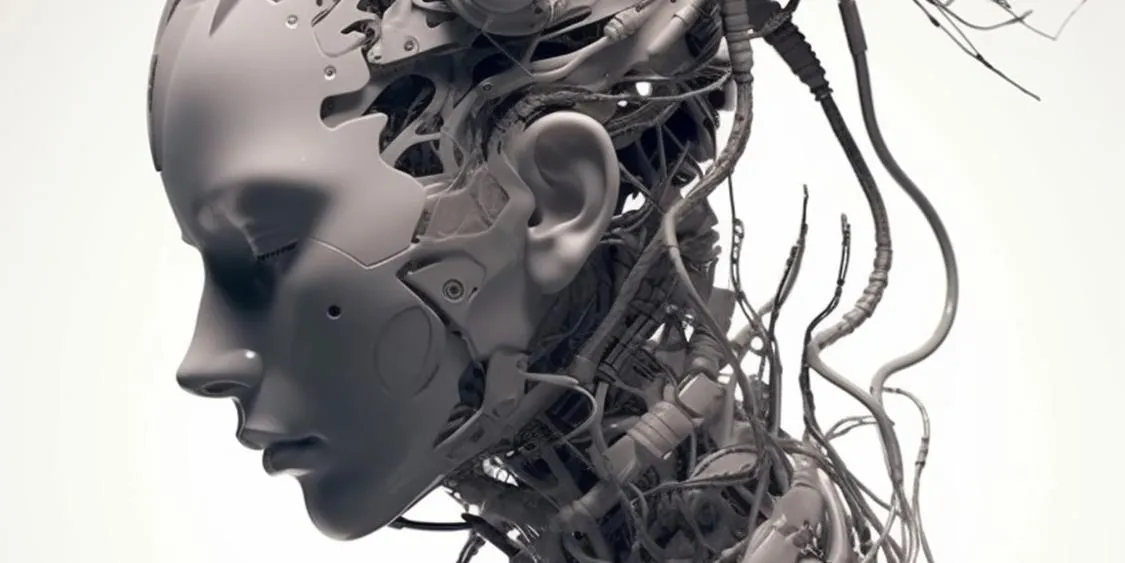
The Self in the Machine: How AI Is Redefining Personal Development
The Self in the Machine: How AI Is Redefining Personal Development
Self Worth Sam
Personal Development Speaker
http://selfworthsam.com

Artificial intelligence is no longer just transforming industry and infrastructure, it is reshaping how we grow as individuals. The integration of AI into personal development marks a new era, one where data-driven insights, personalized learning, and algorithmic coaching increasingly influence our journey toward self-actualization. As self-help tools evolve from books and seminars to apps and chatbots, the line between human intention and machine guidance begins to blur. While this technological symbiosis offers extraordinary opportunities for growth, it also poses deep philosophical and ethical questions about identity, agency, and the essence of being human.
Historical Context: From Plato to Platform

Personal development has always mirrored the technology of its age. In the past, growth was guided by philosophical mentors or spiritual teachers. The Industrial Revolution introduced formalized self-help systems and education models. The digital age then democratized access to coaching, knowledge, and tools for self-reflection.
Now, artificial intelligence is transforming this landscape once again. With the ability to deliver customized recommendations, adapt in real time, and simulate human interaction, AI represents the next evolutionary step. From generative AI creating personalized meditations to platforms that adjust learning paths dynamically, personal development has become hyper-individualized. However, as this shift unfolds, we must ask whether this personalization nurtures our growth or simply optimizes us for efficiency.
Theoretical Perspectives: Mind, Machine, and Meaning

At the heart of this convergence are deeper questions about cognition, consciousness, and identity. Reflexive monism, as proposed by Velmans, posits a dual-aspect theory of the mind and brain, suggesting AI’s influence on cognitive development may reshape not only how we learn but also how we see ourselves. Wilber’s spectrum of consciousness offers a broader perspective, proposing that true growth spans multiple dimensions, not just cognitive but also emotional, spiritual, and interpersonal. AI may support the cognitive aspects, but can it genuinely foster the deeper layers of transformation?
Cognitively, AI tools can enhance self-awareness by analyzing behavior and providing feedback. Philosophically, however, the risk arises when individuals begin to over-identify with algorithmic guidance, treating machine-generated insight as if it were self-knowledge. This confusion challenges traditional concepts of autonomy and self-determination.
Implications for Identity: The Algorithmic Self

As AI becomes a mirror for our thoughts, choices, and behaviors, the boundaries of identity shift. When intelligent systems predict our preferences, script our responses, and shape our goals, what remains uniquely human? Reliance on AI in this domain risks creating what some researchers call the algorithmic self, an identity subtly shaped by pattern recognition and predictive modeling.
The concern here is not merely philosophical. Studies have shown that users, especially younger generations, exhibit reduced critical thinking and memory retention when relying heavily on AI systems for decision-making. As AI becomes more capable, we risk becoming less reflective, less original, and less self-aware.
Benefits and Innovations: Personalized Growth at Scale

Despite the concerns, the practical benefits of AI in personal development are undeniable. Personalized growth plans, adaptive learning systems, and real-time feedback loops offer unprecedented customization. For example, AI can tailor a learning path based on cognitive preferences and emotional readiness, helping individuals engage more deeply and consistently with their goals.
Interpersonal skill development is also being shaped. AI tools are being trained to provide real-time feedback on communication style, tone, and empathy. In professional settings, this is improving leadership training and collaborative skills. In therapy and coaching, AI is being used to augment emotional insight, although it still cannot replace the nuance of a human relationship.
Ethical Considerations: Who Holds the Mirror?

As personal development merges with AI, ethical questions multiply. Data privacy, consent, and transparency are crucial, especially when individuals share intimate reflections and emotional states with digital systems. There are also questions around motivational autonomy. If AI knows what you want before you do, whose desire are you acting on?
The phenomenon of cognitive offloading, where individuals increasingly rely on AI for memory, planning, and reasoning, may reduce the development of inner capacities such as critical thinking, emotional regulation, and decision-making. Ethical personal development must include deliberate limits, preserving space for human agency, uncertainty, and growth through effort.
Future Outlook: A Co-Creative Path Forward

Looking ahead, the future of personal development will likely be a hybrid of human intuition and artificial insight. AI will not replace inner work, but it may reframe how that work is approached. Systems will increasingly offer adaptive learning, continual feedback, and intelligent reminders. For some, this will unlock new levels of growth. For others, it may become a digital crutch.
To strike a balance, both designers and users must prioritize human-centered design, ensuring AI tools empower rather than override. Transparency, ethical frameworks, and interdisciplinary collaboration will be essential.
Conclusion: Becoming Human, Plus
The merging of AI and personal development is a double-edged sword. On one side, it offers powerful tools for self-knowledge, emotional mastery, and lifelong learning. On the other, it risks dulling the very muscles personal growth was designed to strengthen, including self-reflection, critical inquiry, and emotional presence.
The challenge is not to resist the rise of AI, but to engage with it consciously. It is wiser that growth remains rooted in human values. It is wiser to ensure that as our machines evolve, we do not forget the mysterious, emotional, and creative essence of the species they were designed to serve.
In this new frontier, the opportunity is not to become less human. The opportunity is to become a little more.
